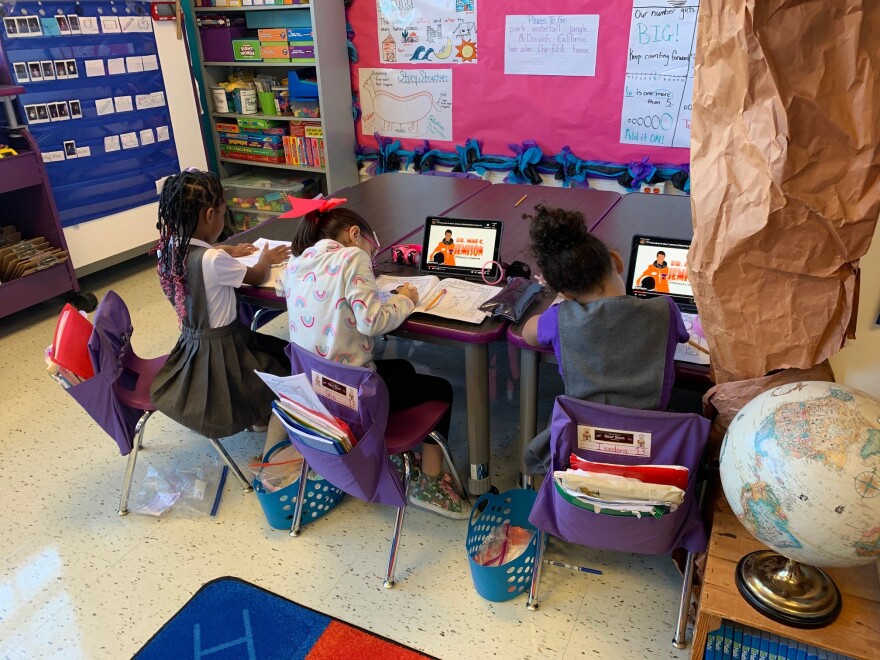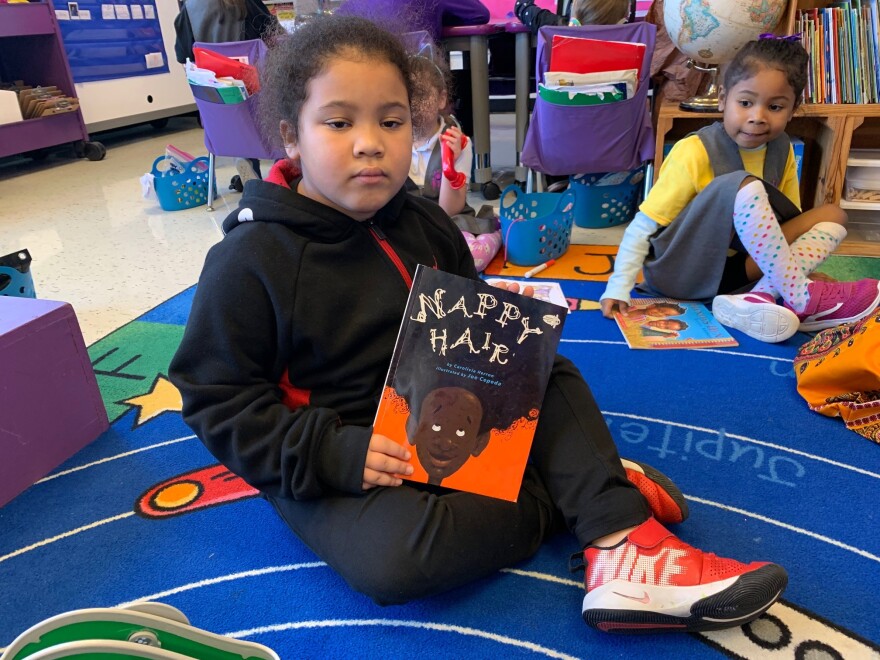At the Solar Preparatory School for Girls in the Dallas school district, two black teachers are incorporating black history into their classrooms — and making it more than just a one-time lesson.
In Nichollette Jones' Kindergarten classroom, some students are watching a video about astronaut Mae Jemison, the first black woman to journey to space.
Others are sitting on the carpet and reading books featuring black characters. Students read books like "Nappy Hair," which is about a black girl who learns to love her hair.

Jones said it's important to have these types of books in her classroom, not just during Black History Month but all year long.
"If I can get them seeing themselves in what they're reading on an everyday basis, then they'll eventually start to believe in themselves," Jones said. "And then I want to make sure it's well-rounded because I want them to realize that everybody is valuable and not just one or the other."
Jones encourages her students to ask questions about anything, including things they don't understand. Those things often touch on race.
She recalled a time when a student asked her why there isn't a white history month.
“We actually talked about why that's not the case because every day is white history when you learn about history," Jones said.

That led to a bigger conversation about race and segregation.
“The water fountains versus where you were able to sit on the bus, where you could go, where you couldn’t go, and then that even went further to talking about the money that we're able to make, and homelessness," she said.
The discussion addresses deep issues for Kindergarteners, but Jones said they're mature enough to discuss and process this history.
She wants her students to celebrate Black History Month, but she also wants to give them space to celebrate themselves.
So when her students come to class, they start their day focused on building self-esteem with something called Shine Time.
"When we come to shine time, I have affirmations that talk about loving yourself exactly as you are, or you being enough," she said. "We have a specific reading that we do where the girls go around the circle saying 'I love myself, I mean every single thing, from the color of my skin, to the soul within."
Upstairs at Solar Prep, the fourth graders in Rochelle Hailey's class are much quieter, drawing and writing reflections on what they've learned during the month.

"Being an African-American teacher, I want to make sure that they understand that celebrating the history of anybody, only during their month, is just a celebration," Hailey said. "But, really getting to know each other and understanding really who you are, that comes with really being proud of the skin you're in.”
She said Black History Month is a chance for her fourth graders to talk about everything — including slavery. But she wants them to know that blackness didn't start with slavery, and that black history isn't just a lesson on oppression.
"I took them to them robotics lab and we just did like a virtual tour of Africa, and then the kingdoms that used to be of Africa, and every group had their own kingdom that they had to present," Hailey said. "We had a time where we talked about slavery, with slavery we really focused on just fierce females. And so, who was an abolitionist, who stood up, and what did it take?"

Beyond the lessons, Hailey wants her students to feel comfortable talking about what's happening today. She wants them to have a voice and discuss injustices they see inside and outside of school.
"More black girls are sent to prison, more black girls are taken from their parents, more black girls are going into the streets and just living in the streets because they feel like there are no options because people don't value them," she said. "Have you ever felt at Solar like you're not paid attention to, or you're not seen? Having those conversations makes them a little bit more aware."
One of Hailey's students, Olivia Waterhouse, was excited to share what she's learned over the past few weeks.
"I got to speak and I got to show my other side of me of reading this paragraph about black history and how we can change others seeing of what black history is to them," she said.

For Charlotte Veasey, her favorite part of the month has been writing a story about black history that she can share with others.
“And I could teach younger girls about black history, and that just seems like something that's fun, and life changing," she said.
Even after February, the lessons about black history — about blackness — are forever.





